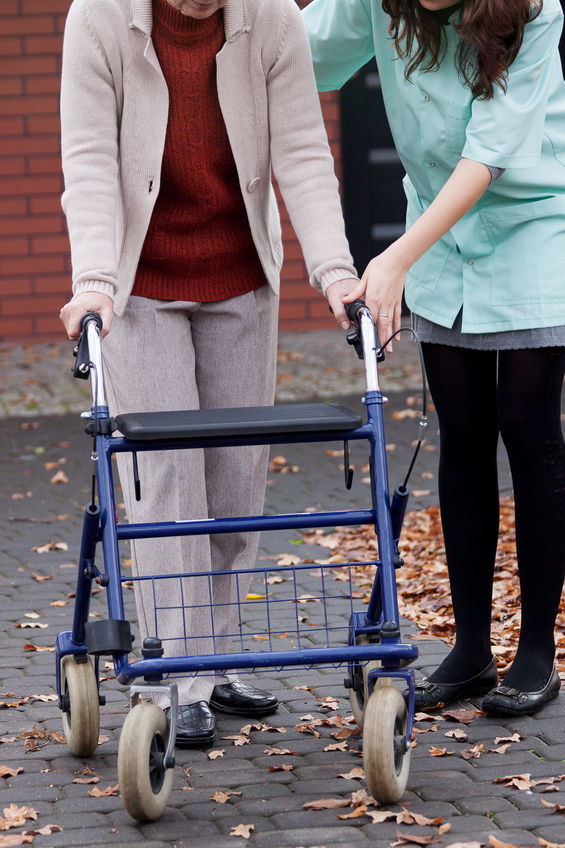5 Signs of Nursing Home/Assisted Living Neglect
August 26, 2019 | Category: Nursing Home Neglect/Abuse | ShareState and federal authorities are failing to keep up with who owns and runs U.S. nursing home facilities, housing 1.3 million elderly and disabled people, according to NBC Nightly News. Three-quarters of the 1.3 million people are in beds paid for by Medicare and Medicaid. Some nursing homes are owned by large corporations with facilities across the United States. These facilities fall under the jurisdiction of federal monitoring. States are responsible for tracking ownership and conditions at nursing homes within their borders.
 NBC investigators found there were allegations of negligence at a major nursing home chain. Skyline Healthcare expanded quickly going from 10 to 100 facilities in eleven states in two years. As the individual nursing homes ran out of money, patient neglect settled in.
NBC investigators found there were allegations of negligence at a major nursing home chain. Skyline Healthcare expanded quickly going from 10 to 100 facilities in eleven states in two years. As the individual nursing homes ran out of money, patient neglect settled in.
Stephen Monroe, an industry analyst for three decades who is the managing editor for the nursing home trade magazine Senior Investor, said, “I just don't think I've ever seen anything like it. I have no idea what that family was thinking. To go from 10 to 100 in two years with no real back office? I looked at that and said from day one, 'Impossible.’”
“Should you or a loved one reside in a nursing home or assisted living facility, please consider the following five signs of potential patient neglect,” said Fort Myers Nursing Home Abuse Attorney Randall Spivey of Spivey Law Firm, Personal Injury Attorneys, P.A.
- Personal hygiene – Many nursing home or assisted living facility residents need assistance in doing personal hygiene duties they were previously able to perform. These duties include bathing, dressing, brushing their teeth, combing their hair and other duties. If residents are not assisted, they may try to do these things on their own, which can result in falling and other injuries, or they may not do them at all, which has other ramifications. If there is a shortage of trained staff, resident hygiene routines usually suffer. The New York Times reported in 2013 that the lack of senior citizen dental care in facilities is a serious issue in the United States.
- Unsafe or unsanitary living conditions – Nursing homes and assisted living facilities are required to provide their residents with safe and clean living conditions. Should they fail to do so, residents are being neglected. According to federal law, facilities must “establish and maintain an infection control program designed to provide a safe, sanitary and comfortable environment in which residents reside…” States also have laws regarding living conditions. These include the responsibility facilities have to be sure residents have clean clothing and bedding, clean bathroom areas, and sanitary kitchens. Should these be neglected, residents could become sick and experience other health-related issues.
- Lack of nutrition/dehydration – Poor nutrition affects millions of nursing home/assisted living residents. Inadequate staffing, a lack of individualized trained care, and high turnover can lead to malnutrition and dehydration.
- Loss of mobility – Residents need to remain as active as possible by moving around and exercising. Muscle tone and strength must be maintained to improve circulation, increase balance and reduce the chances of spasms. Should a resident be left in bed for long periods of time, he or she risks losing all mobility and may face multiple health issues, such as bedsores and infections. The Centers for Disease Control and Prevention (CDC) reports that about 1,800 older adults, living in nursing homes, die each year from fall-related injuries, with the average nursing home resident falling 2.6 times each year. After a fall many may become permanently disabled with a reduced quality of life. Some of these falls are related to a lack of care, but not all. The CDC provides a list of things facilities can do to help prevent falls.
- Psychological issues – Nursing home or assisted living facility residents may experience emotional issues if they are neglected. These include becoming afraid of caregivers, reluctance to speak about the issues they face, and/or becoming resentful or angry. Sometimes, they may grow distant from friends, family and staff and close themselves off from others, which can lead to depression. The National Adult Protective Services Association says that self-neglect is “an adult’s inability, due to physical or mental impairment or diminished capacity, to perform essential self-care….” Some examples of this behavior include refusing to eat, refusing to take necessary medication or refusing to perform basic personal hygiene.
"Nursing home/assisted living neglect is prevalent in Florida. Please contact our experienced legal team should you or a loved one be the victim of facility neglect. We are available 24/7, and there are no costs or attorney fees unless we make a monetary recovery for you,” said Attorney Spivey.
Florida Nursing Home Negligence Attorney, Randall L. Spivey is a Board Certified Civil Trial Attorney – the highest recognition for competence bestowed by the Florida Bar and a distinction earned by just one (1%)percent of Florida attorneys. He has handled over 2,000 personal injury and wrongful death cases throughout Florida. For a free and confidential consultation to discuss your legal rights, contact the Spivey Law Firm, Personal Injury Attorneys, P.A., in Lee County at 239. 337.7483 or toll free at 1.888.477.4839, or by email to Randall@SpiveyLaw.com. Visit SpiveyLaw.com for more information. You can contact Spivey Law Firm, Personal Injury Attorneys, P.A. in Charlotte County at 941.764.7748 and in Collier County 239.793.7748.

